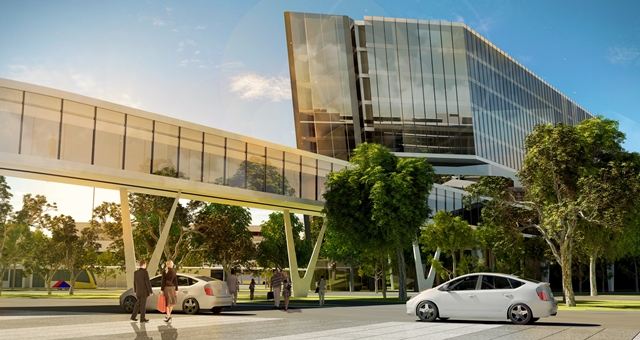Adelaide Airport is set to develop a 260-room hotel as part of a Master Plan that’s received Federal Government approval.
The 2014 Master Plan, approved late last week (Jan 16) will allow the airport to plan for growth, jobs creation and sustainable economic development.
The Master Plan, together with Adelaide Airport’s 30-Year Vision announced in October last year, puts in place the blueprint for significant infrastructure investment including terminal expansion, and new facilities such as the Airport Business District featuring industry clusters.
HM understands following consultation with several accommodation operators, Adelaide Airport is looking at an upscale hotel (4- to 4.5-star) that would feature limited MICE and F&B facilities with an emphasis on more rooms.
Adelaide Airport Managing Director, Mark Young, said the major pieces were now in place for Adelaide Airport to become a top tier airport business centre in the Asia Pacific region.
“Since privatisation in 1998, we’ve doubled the number of passengers and more than quadrupled the number of international passengers. We’ve also invested more than AUD$500 million in infrastructure and facilitated a further AUD$350 million in the past 10 years alone,” Young said.
“Following a period of being Australia’s fastest growing capital city airport, passenger numbers expect to top 8 million for the first time this year. We’re also South Australia’s largest single site employment precinct, contributing AUD$1.9 billion – or 2.1% – to the Gross State Product.
“Based on what we’ve been able to achieve in little more than 15 years, we’re confident we can bring our 30-year Vision to life within the framework put in place by the Master Plan.”
Over the next five years, the Master Plan envisages approximately AUD$1 billion in on-airport investment and the creation of a further 3,500 new jobs, which will take the airport’s total onsite workforce to more than 12,000. The airport will also continue to welcome more airlines and cater for more flights to more destinations domestically and internationally.
Potential infrastructure projects over the next five years include a 260-room hotel, expansion of the southern end of the main terminal, expansion of the international arrivals hall, additional international arrival gates, expanding the main security check point, and more retail space and airline lounges.
Based on its 30-Year Vision, Adelaide Airport will ultimately see a tripling of its domestic and international terminal aerobridges by 2044, easily accommodating new-generation aircraft including the A380 and Dreamliner.
The new Airport Business District will be a globally connected, next-generation hub, with designated industry clusters such as mining and resources, freight and logistics, technology, office and warehousing and healthcare.
“As a major economic and employment generator, the growth of Adelaide Airport is inextricably linked to the development of South Australia,” Young said.
“The approval of our Master Plan allows us to plan and commit to appropriate levels of infrastructure to stay ahead of this growth and maintain our reputation as one of Australia’s most modern airports.
“Any airport growth will continue to be balanced with the views of the community and with taking a sustainable approach to development.
“With this growth comes the responsibility to ensure any airport development is compatible with surrounding land uses and considerations of the community and stakeholders.
“The Master Plan is just one part of our ongoing consultation with the community. Adelaide Airport was one of the first airports in Australia to set up regular interaction with resident, business, government and stakeholder representatives to discuss all aspects of our operations, including aviation infrastructure, landside infrastructure, aircraft noise, land use, ground transport and the environment,” Young said.
Following the Federal Government approval, a revised major development plan will be released within the coming months.



